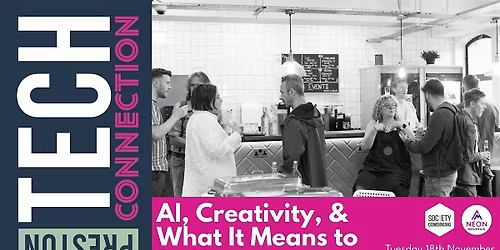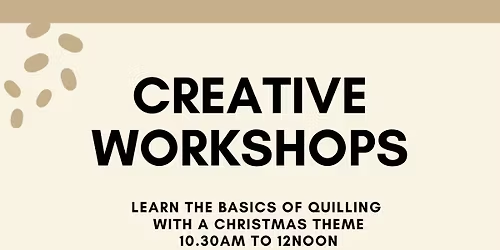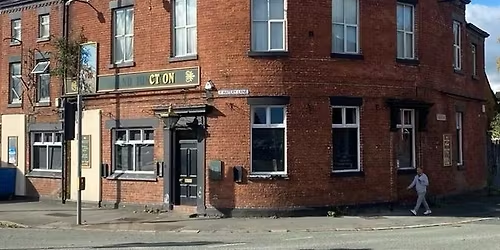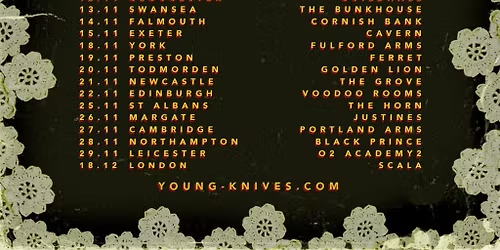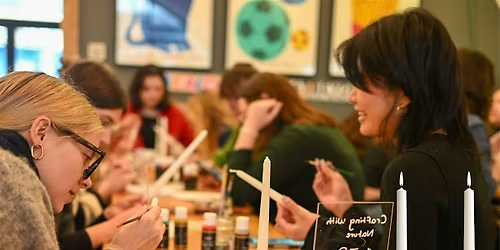![Approaches to Oral History [One Day Conference]](https://cdn.stayhappening.com/events7/banners/278e3d009d3e6314dec7e51489337f85d064f9decd0f681ae4d223ab0d139d80-rimg-w940-h470-dc160f12-gmir.jpg?v=1761917831)
About this Event
Approaches to Oral History
[One Day Conference]
Date: Wednesday 19th November 2025 [10am - 3.30pm]
Location: Livesey House
Join us for a dynamic exploration of oral history at our upcoming one-day conference. Learn from experts in the field and discover how an oral history approach can capture and preserve personal and group narratives on a diverse range of historical topics. The conference has a series of presentations with time for Q&A.
Livesey House room 13
10.00 Registration
10.30 Welcome and introduction to the aims of the conference
10.40 Keynote and Q&A with Dr Brigid Power
11.45 Break
12.00 Panel talks and Q&A with Dr Keith Vernon, Dr Máirtín Ó Catháin, and Dr Billy Frank
1.20 Lunch Break [bring your own!]
1.50 Keynote and Q&A with Chris Law
2.50 Break
3.00 Closing Plenary and Discussion
3.30 Close
Session Details
'My Story, My Way: Co-production and collaboration in a trauma informed oral history project'
Dr Brigid Power [Independent Heritage Consultant]
Since January 2025, Dr Brigid Power has been working closely with Former Residents of Ireland's Mother and Baby homes who reside in the north of England to record their testimonies and memories. The impetus for the project came from the participants themselves who felt that for too long their stories had gone unheard and their voices un-listened to. At the heart of this project is co-production and collaboration with a determination not to retraumatise people who have already suffered too much. This is attempted by putting the participants at the heart of everything that is done, including the decision-making process, and taking a holistic and slightly topsy-turvy approach to more traditional oral history.
Oral Histories of the East German Border Regime: The Challenges of Reusing Archived Interviews in ‘Perpetrator Research' in Reunified Germany
Chris Law [University of Newcastle]
The GDR border regime has been the object of severe criticism in the Western world since it was made official policy to prevent all ‘illegal’ border crossings – shooting at civilians, if necessary. Between 1961 and 1989, at least 140 people died in connection with the border regime at the Berlin Wall alone. Since German reunification, the Berlin Wall Foundation has been at the forefront of commemorating and documenting the history of German division. This has included oral history interviews with contemporary witnesses, the vast majority of which have reflected its horrors – including escape helpers, refugees, and the relatives of victims. Mindful of the border regime drifting out of historical consciousness, the ‘Border Experiences’ project was conceived to act as a corrective to previous research that had disregarded the experiential-human dimension through strictly archival holdings, and to create a foundation for future developments in Täterforschung (‘perpetrator research’). These interviews were recorded and archived but have not been used for historical enquiry until now. This paper reflects on the challenges of recruitment for ‘difficult’ oral history projects, reusing archived interviews (in another language), and doing so in the context of a traditional commemorator meeting those from a group that carries the collective reputation of perpetrators. It will, in turn, also consider possible future developments in the field.
Panel Sessions
Uchronic narratives in Irish oral history
Dr Máirtín Ó Catháin
Uchronic narratives refer to those moments when historic events took a different turn from those desired and perhaps expected by a particular group of protagonists. They hone in on the space where hopes were dashed and fears realised, where betrayal and sell-out took place, but obviously, less dramatically, where nothing occurred. This was not, of course, true absence because a past emerged, just not the one dreamed of by its supporters and therefore that past entered the condition of stasis or a space of imagined presence. That empty space is the subject of this paper, which looks at the theme in modern Irish history with its many frustrations and failed alternatives dating back to the Anglo-Irish Treaty and partition of 1921. It will examine a number of uchronic perspectives on Ireland’s past situated in some oral history recordings of both well-known and more obscure figures associated with its revolutionary movements.
The Harris Alumni Interviews
Dr Keith Vernon
The university's alumni team has a special register of former students who attended the predecessor institutions, The Harris Institute and Harris College, most of whom are now in their 70s and 80s. As part of the preparations for the forthcoming 200th anniversary, I've been working with the Alumni team and Special Collections to capture some memories of their time at the Harris. A first phase focussed on students who attended in the mid-1950s. Currently, we are working with those who attended in the 1960s. This session considers some of the practical problems we’ve faced in capturing these memories, some of the difficulties the material presents, and the benefits of what these oral histories reveal.
Dr Billy Frank
The insider, the fraud, and the death of Randy Rhoads
The challenge of the insider interview has long been recognised within oral history methodology. How can one objectively research and understand an organisation/group when they are part of it? This paper reflects on the benefits and challenges of being an insider during my recent research with online communities that celebrate BBC Radio One’s Friday Rock Show [1978 – 1993]. It demonstrates how shared tropes and memories evince a common understanding, trust, joy, and even friendship in the research process.
For more information, please contact Dr Billy Frank [[email protected]]
Event Venue & Nearby Stays
Livesey House, 6 Heatley Street, Preston, United Kingdom
GBP 0.00

